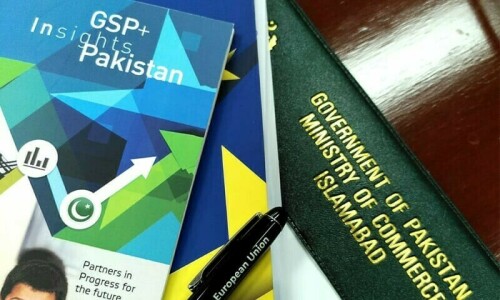ISLAMABAD: The United Nations Economic and Social Commission for Asia and the Pacific (ESCAP) on Friday launched a new online portal which will provide unprecedented access to information on the energy policies of the region, and advance the sustainable energy agenda.
The Asia-Pacific energy portal offers member states powerful tools, including highly interactive data visualisations that enable rapid trends identification as well as policy tracking and search. The unique combination of data and policy information in one application will help improve analysis of the energy situation, policies and their development impact.
Alongside the portal, ESCAP also launched the first annual regional trends report on energy for sustainable development in Asia-Pacific. The report provides an additional platform for member states to share their experiences through case studies regarding the energy sector and its future development.
ESCAP Executive Secretary, Shamshad Akhtar, on the sidelines of the launching, explained that the report and the portal are part of the three pillars of the Asia-Pacific Energy Forum Implementation Support Mechanism set up by ESCAP two years ago.
The third pillar is an annual policy dialogue, which met for the first time last year.
“The portal will continue to evolve to further expand the knowledge base supporting both the regional and global agendas such as the ‘Sustainable Energy for All’ initiative and the sustainable development goals,” said Dr Akhtar.
“Future development will include incorporation of more data and the creation of energy resource and infrastructure maps. The portal could also be linked in the future with the regional data repository on sustainable energy for all in the Pacific.”
Meanwhile, Asia-Pacific countries on Friday embarked on an ambitious agenda to promote the balanced integration of the economic, social and environmental dimensions of sustainable development at the just-concluded ESCAP session in Bangkok. The voice of the Pacific was strongly heard at the intergovernmental level this year, with the largest group of Pacific heads of state and government on any commission panel in recent history.
Among the 14 important resolutions passed, the Commission committed to strengthening the “unfinished agenda” of intraregional and interregional connectivity in Asia-Pacific by reinforcing cooperation in the development of their strategies on maritime transport, international railways and Information Communication Technology (ICT) connectivity infrastructure.
Published in Dawn, May 30th, 2015
On a mobile phone? Get the Dawn Mobile App: Apple Store | Google Play















































Dear visitor, the comments section is undergoing an overhaul and will return soon.